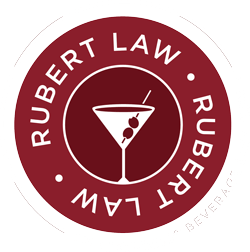Frequently Asked Questions On Alcoholic Beverage Law
Navigating alcoholic beverage law at the state or federal levels on your own can be daunting and confusing. At Rubert Law, we understand the complications you face and strive to ease the process ahead. Read on for some of the common questions we receive on alcoholic beverage law:
How Can I Obtain A Liquor License In Florida?
The Division of Alcoholic Beverages and Tobacco (DABT) oversees licensing in Florida, while the United States Alcohol and Tobacco Tax and Trade Bureau (TTB) oversees licensing at the federal level. The first step to obtaining a liquor license is determining which type of license best suits your operation. After making this decision, you must apply for the license.
Everything from wait times to the cost of the license will depend on your specific situation. We can advise on what to expect, which type of license is most suitable for your business and what other requirements are necessary to get your business up and running.
I Want To Open A Bar. What Should I Look For When Choosing A Location?
Choosing the right location for a new bar is critical and there are regulations you must follow. In Florida, a new bar must be a certain number of feet away from schools, churches, other bars and other alcoholic beverage establishments. You also must comply with zoning regulations. Your lawyer can advise you on general parts of town to look for real estate to purchase or lease. Once you find a promising property, your attorney will investigate to see that it complies with all laws and regulations.
What Do I Need To Do To Import Alcoholic Beverage Products?
For your business to import alcoholic beverage products, including wine, beer or spirits, you must first apply for a Federal Basic Importer’s Permit from the TTB. To obtain this permit, you must have an operating and staffed office located in the U.S. If you are unable to operate within the U.S., you can also partner with an existing licensed importer, which eliminates the requirement of obtaining a permit. Establishing a commercial agreement with a licensed importer can be a complex process. An attorney can advise on whether the terms of the contract suit your best interests, as well as on the process to obtain a federal permit if necessary.
Where Do I Start?
Navigating the laws, regulations and restrictions applicable to your situation can be challenging. For answers to questions regarding your business, contact us today. We work with clients throughout the state of Florida, including in Weston, Miami, Orlando and Tampa. Schedule an initial consultation with us by calling us in Weston at 954-546-7951 , calling us in Miami at 305-809-7669 or by sending us an email.
